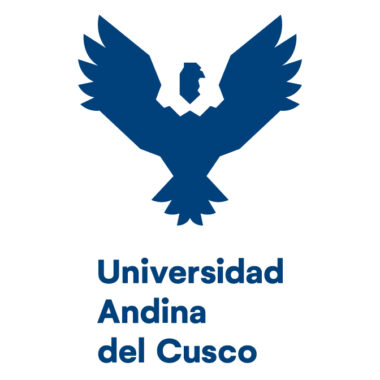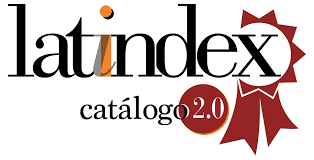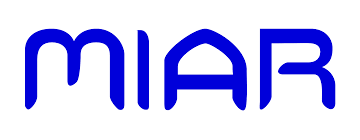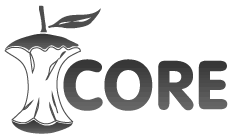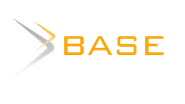Technostress and academic performance of first cycle students of the Universidad Andina del Cusco, 2021
DOI:
https://doi.org/10.36881/yachay.v12i2.640Keywords:
Technostress, academic performance, students, Universidad Andina del CuscoAbstract
The research is carried out under the title “Techno-stress and academic performance of first-cycle students of the Universidad Andina del Cusco, 2022”, its general objective being to establish the relationship between the level of techno-stress and the academic performance of first-cycle students of academic studies semester 2021-II of the Universidad Andina del Cusco, the interpretation of the academic performance variable is carried out considering the academic model of the higher education institution where the study was carried out, using an instrument with adequate criteria for the median of technostress. psychometric. The study is developed within a quantitative approach, being of an applied type, since it depends on the knowledge and contributions of basic research, in addition to relating the variables it is considered within a correlational scope and with a non-experimental cross-sectional design, surveying a sample of 847 students. Among the most relevant results is the relationship between technostress and the academic performance of university students, the relationship between all the dimensions of technostress and academic performance, The conclusion was that the higher the level of technostress, the lower the academic performance of the students.
Downloads
References
Álvarez, T. (2021). Tecnoestrés y aprendizaje autónomo en estudiantes de ingeniería de una universidad particular de Lima Este-2021. [Tesis de maestría]. Universidad César Vallejo.
American Psychological Association [APA]. (2020). Comprendiendo el Estrés Crónico. APA. https://www.apa.org/centrodeapoyo/estres-cronic
Arredondo-Hidalgo, M., & Caldera-González, D. (2022). Tecnoestrés en estudiantes universitarios. Diagnóstico en el marco del covid-19 en México. Educación y Humanismo, 24(42), 90-105. https://doi.org/10.17081/eduhum.24.42.4491
Caballero, C. C., González, O., & Palacio, J. (2015). Relationship between burnout and engagement, with depression, anxiety and academic performance in university students. Salud Uninorte, 31(1), 59–69. DOI.org/10.14482/sun.31.1.5085
Cabanach, R., Fernández-Cervantes, R., González, L. y Freire, C. (2010). Estresores académicos percibidos por estudiantes universitarios de ciencias de la salud. Fisioterapia, 32(4), 151-158. DOI: 10.1016/j.ft.2010.01.005
Castejón, J. L. (2014). Aprendizaje y rendimiento académico. Editorial Club Universitario. https://dialnet.unirioja.es/servlet/libro?codigo=588861
Caso-Niebla & Hernández-Guzmán, (2007). Modelo explicativo del bajo rendimiento escolar: un estudio con adolescentes mexicanos. Revista Iberoamericana de Evaluación Educativa, 3 (2), 145-159. https://repositorio.uam.es/handle/10486/661617
Conley, C. S., Travers, L. V, & Bryant, F. B. (2013). Promoting psychosocial adjustment and stress management in first-year college students: The benefits of engagement in a psychosocial wellness seminar. Journal of American College Health, 61(2), 75–86. https://doir.org/10.1080/07448481.2012.754757
Cuervo Carabel, T., Orviz Martínez, N., Arce García, S., & Fernández Suárez, I. (2018). Tecnoestrés en la Sociedad de la Tecnología y la Comunicación: revisión bibliográfica a partir de la Web of Science. Archivos de Prevención de Riesgos Laborales, 21(1), 18-25. https://dx.doi.org/10.12961/aprl.2018.21.01.4
Diario el Peruano. (2020a). Decreto de Urgencia N.° 026-2020. https://busquedas.elperuano.pe/normaslegales/decreto-de-urgencia-que-establece-diversas-medidas-excepcion-decreto-de-urgencia-n-026-2020-1864948-1/Diario.
Diario el Peruano. (2020b). Resolución Viceministerial N.° 084-2020-MINEDU. https://busquedas.elperuano.pe/download/url/disponen-medidas-excepcionales-con-relacion-al-servicio-educ-resolucion-vice-ministerial-n-084-2020-minedu-1865287-1
Díaz-López, A., Maquilón-Sánchez, J., Mirete-Ruíz, A. (2020). Uso desadaptativo de las TIC en adolescentes: perfiles, supervisión y estrés tecnológico. Comunicar. Revista Científica de Comunicación y Educación, 64(28), 29-38. https://doi.org/10.3916/C64-2020-03
Estrada, G. E., Mamani, M., Gallegos, N. A., Mamani, H. J. & Zuloaga, M. C. (2021). Estrés académico en estudiantes universitarios peruanos en tiempos de la pandemia del COVID19. Archivos Venezolanos de Farmacología y Terapéutica, 40(1), 88-93. http://doi.org/10.5281/zenodo.4675923
Galarza, F. (2018). Las Nuevas Tecnologías de la Comunicación ( TIC ): su relación con el Tecnoestrés en estudiantes universitarios. Universidad Siglo 21.
Garcés, L. (2017). Relación entre el clima social familiar y el redimiento académico del alumnado de primero y segundo grado de secundaria de la I.E. particular Virgen de la Puerta - 2015. [Tesis de licenciatura]. Universidad Católica los Ángeles de Chimbote.
Hernández, R., Fernandez, C y Baptista, P. (2014). Metodología de la Investigación (Vol. 6ta Edición). MCGRAW Hill Education.
Huanacuni, R. (2021). Tecnoestrés con el rendimiento académico en estudiantes de Enfermería de la Universidad Nacional Jorge Basadre Grohmann, en tiempos de COVID-19. Investigación E Innovación: Revista Científica De Enfermería, 1(2), 21–27. https://doi.org/10.33326/27905543.2021.2.1218
Law, N., Pelgrum, W. J. y Plomp, T. (2008), Pedagogy and ICT use in schools around the world: findings from the IEA SITES 2006 study. Springer, Comparative Education Research Centre. http://www.sites2006.net/exponent/index.php?section=1.
MINEDU. (2016). Currículo Nacional de Educación Básica. MINEDU.
Marchesi, A. y Díaz, T. (2009). Los desafíos de las TIC para el cambio educativo en Iberoamérica. Telos (78).
Organización Mundial de la Salud, OMS (2014). La Organización del Trabajo y del Estrés. Organización Mundial para la Salud. http://www.who.int/occupational_health/publications/pwh3sp.pdf
Organización Internacional del Trabajo [OIT] (2016). Estrés Laboral. OIT. https://www.ilo.org/wcmsp5/groups/public/---americas/---ro-lima/documents/genericdocument/wcms_475146.pdf
Pedró, F. (2006). Aprender en el Nuevo Milenio: un desafío a nuestra visión de las tecnologías y la enseñanza. OECD-CERI.
Pulido, M., Serrano, M., Valdés, E., Chávez, M., Hidalgo, P. y Vera, F. (2011). Estrés académico en estudiantes universitarios. Revista Psicología y Salud, 21(1), 31 - 37.
http://www.uv.mx/psicysalud/psicysalud-21-1/21-1/Marco-Antonio-Pulido-Rull.pdf
Rivero, P. (2021). Estres académico y rendimiento académico en estudiantes del nivel secundario de una Institución Educativa Privada, Ayacucho, 2020. Universidad de Ayacucho Federico Froebel.
Román-Collazo, C., Ortiz Rodríguez, F., & Hernández Rodríguez, Y. (2008). El estrés académico en estudiantes latinoamericanos de la carrera de medicina. Revista Iberoamericana de Educación, 1-8. https://doi.org/10.35362/rie4671911
Rosen, L. (2017). Technostress: The human cost of the computer revolution. Psychology Press.
Salanova, M. (2003). Trabajando con tecnologías y afrontando el tecnoestrés: el rol de las creencias de eficacia. Revista de Psicología del Trabajo y de las Organizaciones, 19, 225-247.
Salanova, M., Cifre, E., Llorens, S., & Nogareda, C. (2007). NTP 730: Tecnoestrés: concepto, medida e intervención psicosocial. Ministerio de Trabajo y Asuntos Sociales España. INSHT.
Taylor, S., Landry, C., Paluszek, M., Fergus, T. A., McKay, D., & Asmundson, G. J. (2020). Development and initial validation of the COVID Stress Scales. Journal of Anxiety Disorders, (72), 1-7.
Vidal, J., Muntaner-Mas, A., y Palou Sampol, P. (2018). Diferencias de estrés y afrontamiento del mismo según el género y cómo afecta al rendimiento académico en estudiantes universitarios. Contextos Educativos. Revista de Educación, (22), 181-195.
Wang, X., Tan, S. C., & Lu, L. (2020). Measuring university students’ technostress in technology-enhanced learning: Scale development and validation. Australasian Journal of Educational Technology, 36(4), 96-112.
Downloads
Published
How to Cite
Issue
Section
License
Copyright (c) 2023 Ysabel Masias Ynocencio

This work is licensed under a Creative Commons Attribution 4.0 International License.
You are free to:
- Share — copy and redistribute the material in any medium or format
- Adapt — remix, transform, and build upon the material
- The licensor cannot revoke these freedoms as long as you follow the license terms.
Under the following terms:
-
Attribution — You must give appropriate credit, provide a link to the license, and indicate if changes were made. You may do so in any reasonable manner, but not in any way that suggests the licensor endorses you or your use.


